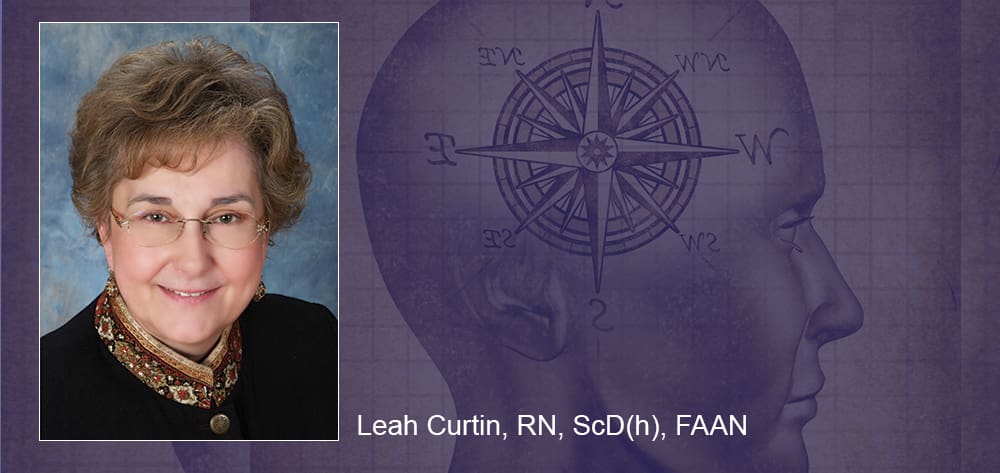Some years ago, I was caring for a 67-year-old woman dying of leukemia who had received an experimental chemotherapeutic agent as a last resort. She was in terrible pain and begged for death. One afternoon, she regurgitated and then aspirated coffee-ground-like material. How I wished I hadn’t been in her room when it happened; then she could have died quickly, albeit terribly.
Of course, I suctioned her—and she lived for three more gruesome days. Even now, I’m not sure I did a good thing by suctioning her, even though it was the right and legal thing to do.
It’s appalling to watch someone suffer and be unable to relieve the suffering. At such times, it would seem a divine mercy to allow death. But although mercy may be divine, we aren’t. We don’t dispense life and we dare not dispense death.
Still, such a situation poses a moral dilemma. Unless dealt with, a moral dilemma leads to moral indifference: an abhorrent state for the healthcare professional and a frightening situation for the patient.
What’s legal is what conforms to laws. What’s right is what conforms to laws, ethical principles, standards, codes, policies, and protocols. But what’s good is quite another thing. If good is an outcome, then the outcome of my decision to suction my dying patient was terrible: three more days of unmitigated suffering. Yet, as Albert Schweitzer said, “If a man loses his reverence for any part of life, he will lose his reverence for all of life.”
In 1919, the noted American jurist Harlan Fiske Stone wrote that “liberty of conscience has a moral and social value which makes it worthy of preservation at the hands of the state. So deep is its significance and vital, indeed, is it to the integrity of man’s moral and spiritual nature that nothing short of the self-preservation of the state should warrant its violation; and it may well be questioned whether the state which preserves its life by a settled policy of violation of the conscience of the individual will not, in fact, lose it by the same process.” This belief created legal space for conscientious objectors even in times of war. Eventually, federal and state statutes were passed to protect healthcare professionals with conscientious objections to participating in certain procedures.
If the state doesn’t presume to order the consciences of its citizens, neither should employers. Not long ago, I received an email from a director of nursing who was concerned about this issue. She wrote, “We are preparing a policy/procedure on the administration of experimental drugs. During the process of putting this together, many questions came up: Does the nurse have the right to refuse to administer an experimental drug? If so, on what grounds? What are the legal and ethical implications? If the nurse is allowed this right to refuse, wouldn’t this violate our patients’ right to have the drug administered to them?”
My response: “No nurse should be required to give any drug she isn’t competent to give. Nor should the nurse be coerced if she or he has a problem of conscience with regard to its administration; another nurse should administer it instead. A patient’s right to have or to refuse a drug should be protected by meticulous adherence to the principles of informed consent. However, the right to require that a particular nurse administer a drug is highly questionable. One person’s rights don’t trump another’s. When a conflict occurs, it should be resolved with the least coercive alternative; in this situation, another person could administer the drug. However, administrators need to screen personnel carefully before putting them in such a situation, and personnel must declare their moral concerns before assuming a position in which they know those moral concerns will be challenged.”
This approach wouldn’t cause moral chaos or promote mass insubordination. I’m merely suggesting that within civilized limits, institutional policies should create some space for nurses.
Leah Curtin, RN, ScD(h), FAAN
Executive Editor, Professional Outreach
American Nurse Today



















1 Comment.
Ms. Curtin gives us an example of questioning of what is legal, what is right, and what is good for patient care. She ultimately argues that nurses need to be protected from working outside of their moral boundaries, and that hospitals should provide for a “moral space” where those with conscientious objections to administer experimental medications can expect not to be coerced into giving them. I agree with Ms. Curtin that, as a nurse, I should feel free from being coerced into administering medications that I am not competent to give. However, I believe it is the duty of nurses to continue lifelong learning in his or her practice area to remain competent in the standards of care necessary for patients’ well-being.
The American Nurses Association Position Statement (March 12, 2012) affirms that nurses “…have the professional right to accept, reject or object in writing to any patient assignment that puts patients or themselves at serious risk for harm”. There are mechanisms in place that protect me should I believe the assignment is unsafe and would place the patient in jeopardy. I could document my beliefs in an objection form, such as a Protest of Assignment, Objection to Assignment, or Assignment Despite Objections form. At the very least, I need to document the date and time of the occurrence, the person making the request of the nurse, my reasons for rejecting the request, and the action taken. However, I understand that will not ultimately give me legal protection from claims of job abandonment or insubordination. Ms. Curtin’s suggestion of having another nurse administer the drug is the simplest solution. It allows me to withdraw from the situation, based on my own moral choice, while also providing the patient care prescribed by the medical provider.
The ANA ultimately posits that nurses’ competencies and knowledge match the patients’ needs in order to provide safe care. They also state that nurses must engage in ongoing education to remain suitable for the patient population they normally care for. The “moral space” should be there for me, but the good of the patient should be foremost in my mind.
Sincerely,
David A. Laird, ADN, RN